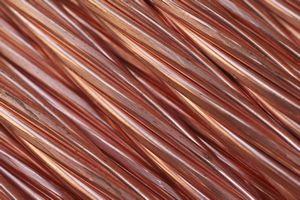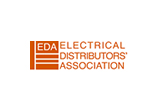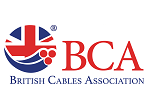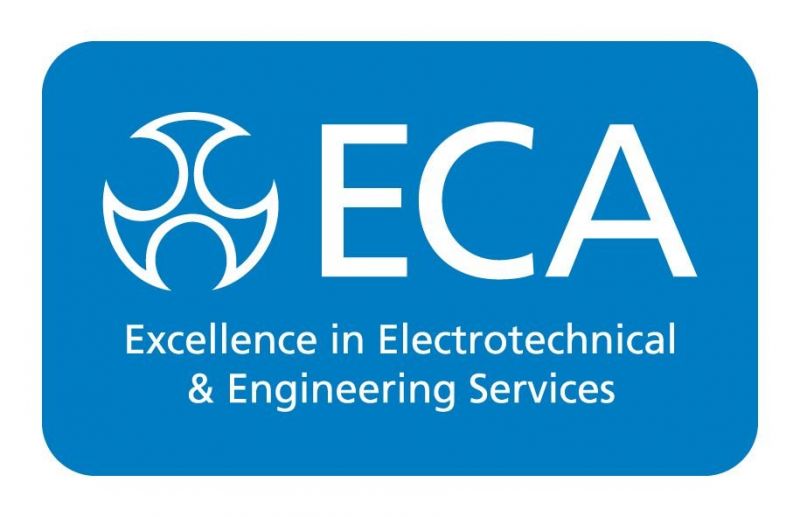Are we being golden fleeced?

As VW continues to wince from the fallout out of its emissions deception, and regulators worldwide seek to tighten up their vehicle assessment systems, the Approved Cables Initiative (ACI) is reminded that this level of dishonesty is no more than has been witnessed for several years within the cable industry owing to a practice of supplying or testing golden samples.
While the car industry, politicians and regulators rethink the test programmes that may have allowed this to happen; questions are also being asked as to whether an auxiliary emissions control device may have lowered discharges during an official test. A device that in fact could have been installed to specifically cheat such tests.
Cheating tests – whether intentionally or not - is as much an issue here as in other industries. Yet while the cable supply chain has highlighted these problems to Government for many years, those with the power to bring about a change in testing and monitoring in this industry remain ambivalent and ignorant to the dangers substandard cable presents.
Golden Samples
So what is the definition of a golden sample within the cable industry?
The ACI believes it should be a random cable sample taken from a manufacturer’s normal production run that is produced to standard and selected by the third party for independent testing.
In reality, while some conform to this process, a golden sample is more likely to have been produced in isolation to meet necessary standards, specifications and in some instances specially to deceive a customer or to obtain a third party test report.
According to ISO/IEC 17067, a one-off test result on a golden sample without any on-going re-testing is only applicable to the actual sample tested and does not give assurance of on-going quality.
The golden sample scenario is now high on the agenda within the car industry as has the elaborate lengths some manufacturers employ, to pass these tests.
Laboratory tests of golden samples, for instance, can involve automakers engineering the car’s exhaust systems to minimise emissions at the specific speeds and temperatures established as benchmarks for the test.
Similarly manufacturers may optimise their results with tactics such as stripping the car of excess weight or removing the air conditioning, leading to a widening gap between reported results for diesels and the pollution that they actually emit. These actions are ways to achieve the results.
“The cars that are tested are called `golden samples’ and differ greatly from the vehicles consumers might buy,” said Vincenzo Luca a spokesperson for TÜV SÜD, the German testing company.
After manufacturers strip out various components, the cars typically weigh around 100-150kg less than production models. “Every legal possibility to reduce emissions is exploited, continued Luca. We test within the limits of EU law.”
What remains legal now however is likely to change as regulators get on board and speed up the introduction of much tougher tests.
A lone battle
While the ACI has gone to great lengths to communicate and educate the supply chain on how to ensure they purchase cable that meets appropriate specifications and standards, the pitfalls of buying cable that isn’t third party approved and tested to this criteria continues.
This is despite a recently BASEC (British Approvals Service for Cables) survey reporting that installers don’t understand the products they buy and rely on wholesalers for the right advice. Yet when supplied with non-approved cable from a trusted source, they wouldn’t question the product.
According to a 2014 survey of more than 950 UK contractors, by the eMarket Surveillance Group and Voltimum, 73% reported that they see a lot/some substandard cable - demonstrating that awareness of substandard cable is high.
Cheap tricks
Not only are some manufacturers producing golden samples to meet specifications and standards and in some instances to obtain a third party test report, but this summer, the ACI was alerted to a cable manufacturer that secured an order by supplying golden samples from another legitimate cable producer.
Once these trade samples were accepted, the manufacturer then supplied its own sub-standard cable to complete the order. None of the substandard cable was sold or installed, as the importer carried out its own in-house cable checks once the order was received to ensure they were of the same quality as the original samples.
All cables supplied as part of the final order failed due to high resistance and in some cases sticking cores because of uncured rubber insulation. The original trade samples were therefore clearly ‘golden samples’ supplied with the intention to deceive.
“It is quite clear that there are those who are prepared to bend the rules by producing isolated samples to deceive the unwary; they will also pass off other manufacturers’ products as their own in order to gain a sale, said Peter Smeeth of the Approved Cables Initiative.
“This case, which has been reported to Health & Safety Executive and Trading Standards, demonstrates the lengths some fraudulent manufacturers and suppliers are prepared to go to and it should be a wake-up call to those purchasing cable and importing into the UK.
“Without rigorous third party approval, where not just the cable but the cable manufacturer themselves have been regularly audited more frequently than annually, including completely unannounced visits, and products periodically re-tested several times each year, importers and distributors are leaving themselves wide open to the dangers of deception”, continued Peter Smeeth.
The ACI is doing all it can to keep a grip on the problem of substandard cable and the Government needs to recognise that other industries too are feeling the full force of the golden sample deception.
While it welcomes the transport secretary’s comments that the priority is to protect the public and give them full confidence in diesel tests, with the focus on laboratory and real world testing, the ACI also urges Government to accept that there are other industry sectors that need this tight approach too.
Far more dangerously, cables, which could end up in our homes, hospitals, schools and shopping centres are prone to the same golden sample scandal – isn’t it time to be concerned about this too?
ENDS
Approved Cables Initiative
Approved Cables Initiative (ACI), an industry-wide working group, is highlighting the dangers of unsafe, substandard, non-approved and counterfeit cable to the cable supply industry (electric and data) and the general public.
Its work focuses upon communicating that such cable is dangerous and that there is a gap in current legislation and enforcement. It is currently pushing for changes to UK legislation to stop dangerous cable being imported and to increase the penalties for infringements.
Anyone with information or concerns about a suspected faulty or counterfeit cable should contact the ACI who will test samples and if found to be unsafe supply details to relevant industry regulators and legislators. ACI can also provide guidance where appropriate to installers.
The ACI works with supply chain representative bodies including Electric Distributors Association (EDA); Electric Contractors Association (ECA); Electric Safety First; British Approvals Service for Cables (BASEC); British Cables Association (BCA); Energy Networks Association (ENA); Ascertiva (previously the NICEIC Group Limited), SELECT and the Joint Industry Board (JIB).
Editors note:
ISO/IEC 17067:2013 Conformity assessment — Fundamentals of product certification and guidelines for product certification schemes, defines several types of conformity assessment scheme, in increasing order of rigour:
Scheme type 1a: type test. Attestation of conformity applies only to samples tested.
Scheme type 1b: batch test, including 100% testing. Attestation of conformity apples to all items in the batch
Scheme type 2: type test plus periodic testing of products from the market
Scheme type 3: type test plus periodic testing of products from the point of production plus periodic assessment of the production process
Scheme type 4: type test plus periodic testing of products from the point of production and/or the market plus periodic assessment of the production process
Scheme type 5: type test plus periodic assessment of production process and/or audit of management system plus periodic testing of products from point of production and/or the market
Scheme type 6: applicable to certification of services and processes. Initial and periodic assessment of service or process plus initial assessment and periodic auditing of management system














